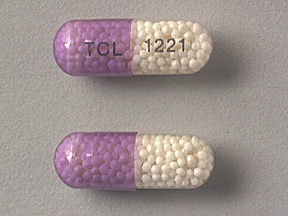
Nitroglycerin ER Coupons & Savings Card – Discount Prices from $34.00
Generic for: Nitro-time
My prescription
Edit
2.5MG, Nitroglycerin ER (90 Capsule Extended Releases)
Select pharmacy

CVS
$68.05
COUPON PRICE
Walgreens
$34.00
COUPON PRICE
Walmart
$34.92
COUPON PRICE
Albertsons
$61.09
COUPON PRICENitroglycerin ER savings card
Show this card to your pharmacist
Walgreens
$34.00
BIN
ID
PCN
GRP
015995
LHKPT557299
GDC
DR33
Powered by
More prescriptions for angina
More prescriptions for angina
Price history for Nitro-time (brand) & Nitroglycerin ER (generic)
90 Capsule Extended Releases, 2.5MG
Average retail price for Nitro-time
Average retail price for Nitroglycerin ER
Average SaveHealth price for Nitroglycerin ER
Our price history data is based on aggregated prescription data collected from participating pharmacies in America. Our prescription data updates daily to reflect the latest price changes. If you notice a missing data point, it means there wasn't sufficient data available to generate a monetary value for that date.
We analyzed Nitroglycerin ER prices for (2.5MG, 90 Capsule Extended Releases) over the last 12 months. The average retail price was $64.18, while the average price using the SaveHealth discount card was $55.78. That's a savings of approximately 13.09% when using our Nitroglycerin ER coupon.
Compared to the generic version, Nitro-time had an average price of $174.61 over the same time period. With the SaveHealth savings card, Nitroglycerin ER is 68.05% cheaper on average than Nitro-time.
*Retail prices are based on pharmacy claims data, and may not be accurate when we don't have enough claims.
Nitroglycerin ER dosage forms
Dosage Quantity Price from Per unit 2.5MG 90 Capsule Extended Releases $34.92 $0.39
| Dosage | Quantity | Price from | Per unit |
|---|---|---|---|
| 2.5MG | 90 Capsule Extended Releases | $34.92 | $0.39 |
Nitroglycerin ER Warnings
This medication comes with important safety information that should be reviewed carefully. Consult with your healthcare provider if you have any questions or concerns.
Tolerance: Over time, your body may become accustomed to nitroglycerin ER (Nitro-Time), leading to reduced effectiveness, known as tolerance or tachyphylaxis. This is particularly likely if you have used other long-acting nitrates like isosorbide mononitrate (Monoket) or isosorbide dinitrate (Isordil). Increasing the dose will not counteract tolerance. To prevent this, adhere to the prescribed dosage and consult your doctor if you experience worsening chest pain. Your doctor may recommend a nitrate-free period of 10-12 hours to minimize this risk.
Low Blood Pressure: Nitroglycerin ER (Nitro-Time) can significantly lower your blood pressure, potentially causing dizziness, fatigue, or lightheadedness. It is advisable to sit down for the first few minutes after taking the medication to prevent dizziness or fainting. Change positions slowly until your body adjusts. Seek emergency medical attention if you experience symptoms like irregular heartbeat, nausea, vomiting, weakness, vision changes, sweating, cold and clammy skin, or worsening chest pain. This risk increases if you're standing when taking the medication, have certain heart conditions, are dehydrated, or use erectile dysfunction drugs, blood pressure-lowering medications, or alcohol.
Worsening Chest Pain: Although rare, nitroglycerin ER (Nitro-Time) can exacerbate chest pain in individuals with hypertrophic cardiomyopathy, a condition where the heart muscle is excessively thick and hampers blood pumping. If you have been diagnosed with this condition, consult your doctor to ensure this medication is appropriate for you. Seek immediate medical help if your chest pain worsens after taking the medication.
Headache: Some individuals may experience headaches when starting nitroglycerin ER (Nitro-Time), particularly when moving from sitting or lying down to standing. These headaches often subside as your body adjusts to the medication. If they persist or become bothersome, discuss alternative treatments with your healthcare provider. The risk of headaches increases when you first begin the medication, take higher doses, or consume alcohol.
Contraindications: Do not use this medication if you have an allergy to nitrates, such as isosorbide mononitrate (Monoket) or isosorbide dinitrate (Isordil), as it may lead to serious health complications. Always consult your healthcare provider before starting this medication if this applies to you.
Nitroglycerin ER Side Effects
Common side effects:
- Headaches
- Dizziness
- Lightheadedness
- Nausea
- Flushing
Serious side effects:
- Fainting
- Irregular or pounding heartbeat
- Severe allergic reaction
- Rash
- Itching
- Swelling of the face, tongue, or throat
- Severe dizziness
- Difficulty breathing
Nitroglycerin ER Interactions
Certain medications can interact with Nitroglycerin ER (Nitro-Time), and it's important to inform your healthcare provider about all the drugs and supplements you are taking. This includes prescription, over-the-counter, vitamins, and herbal supplements. Some interactions to be aware of include:
- Medications Not Recommended for Use with Nitroglycerin ER:
- Drugs prescribed for erectile dysfunction or pulmonary hypertension, such as Avanafil, Sildenafil, Tadalafil, and Vardenafil, should not be used with Nitroglycerin ER as they can lead to serious interactions.
- Medications Typically Not Recommended but May Be Necessary:
- Riociguat and Alteplase, Recombinant might be prescribed alongside Nitroglycerin ER in specific situations, but close monitoring and dose adjustments may be needed.
- Medications That May Increase Risk of Side Effects:
- Caution is advised when using Nitroglycerin ER with drugs like Acetylcysteine, Apomorphine, Aspirin, Dihydroergotamine, and Pancuronium, as they can elevate the risk of side effects. Adjustments in dosage or frequency may be necessary under medical supervision. Additionally, Nitroglycerin ER may interfere with certain laboratory tests, such as those measuring blood cholesterol levels, potentially leading to false results. Ensure that all healthcare providers and lab personnel are informed if you are using this medication.
